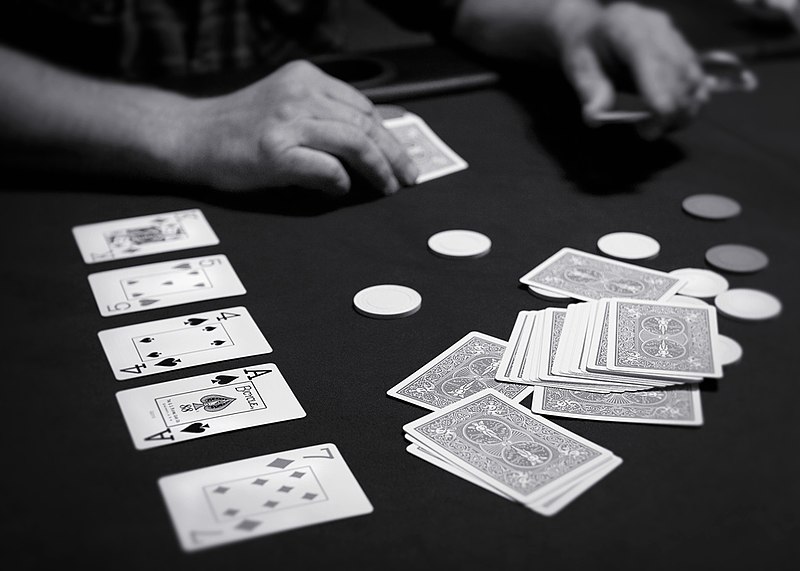
Note: I am not a pro poker player - I love statistics and calculating probabilities however. I also love playing Texas hold’em Poker with friends as well as watching Poker shows from time to time. Please learn or refer to a Poker Dictionary in case you don’t understand some of the terms below.
1. Choose the right table.

Lol just kidding, although it’s important you have a proper table to play poker, this is not about choosing the actual table. It’s about money and risk management.
First, be comfortable with losing: the more people playing, the harder for you to win a hand, remember that. Figure out how much you are willing to lose. Says you are okay with losing $300 a night, divide it by 100 (assuming you play normal stack with 100 Big Blinds buy-in), then by 3 (number of maximum buy-ins you normally should do), you get $1 - that should be the maximum Big Blind amount you should play.
Try not to play games with more than $1 Big Blind and do not buy-in more than 3 times because that will make you feel very uncomfortable, under pressure, which, in turn, will affect your decision in a bad way.
2. Which hands to play?
Memorize this:

Be conservative, follow it with discipline - play red and yellow hands only, or sometimes, blue hands only if you have the dealer position.
Poker is mainly a game of statistics and probabilites: play by the book, start with better hands and you get higher chance of winning, it’s as simple as that.
Don’t get bored if you fold alot pre-flop, it’s normal and usually, the more experienced players fold more times than the rookies do. Take those time to observe and take note on other players , it’s very important the more advanced you are in Poker.
3. How to bet, raise, call, or fold?
One of the most common mistakes of Poker rookies is that they always call but never bet or raise. It’s very important to keep an eye on the pot size and do not be afraid to raise. For example:
- You hit top-pair with a high kicker and there is a good chance of people drawing something (i.e waiting for flush or straight). You should raise an amount similar to the current pot size: make them pay, don’t let them draw for free.
- You hold high cards pre-flop (red hands in the above table), do not be afraid to raise by 3-10 Big Blinds and steal the pot before the flop. If anyone call, it’s a good chance your hands will dominate them (AJ vs A7 for example).
- A general rule of thumb is simply to raise 0.75 to 1.25 times the pot size depending on how confident you are with the flop.
4. Do not over-estimate your hands, learn to fold.
This is very importan to take note because it’s the top reason why you lose a good chunk of money unnecessarily by being inexperienced in a poker table. Be extremely cautious whenever the opponent re-raised or all-in-ed you.
Don’t just call blindly just because you’ve commited a good bit of chips into it previously or hold on to a hand that is no longer strong enough. Your one-pair pre-flop, top-pair top-kicker, two-pairs or trips might not be as good after the river was dealt, especially there are still a good number of people left, or it’s a high chance of straight or flush on the table.
5. Learn to do quick probability estimations.
The easiest way to do it is to watch poker games online - where they have probabilities displayed with the hands. It’s very easy getting used to doing it once you have watched enough of those.
Alternatively, you can also watch tutorial videos like this:
6. Advanced stuff: bluffing, slow play, playing the opponent.
Honestly, if you are new, or you don’t know the oppornent yet, don’t try to do this. It’s very easily backfired when you are not experienced enough. Work out the previous first steps until you are ready to try the smart plays. Once you get to this stage, spend more time learning from a book / online tutorials, plays more pokers game and simply be better.
Good luck, have fun, and remember: Poker is a game of statistics and do not gamble!
